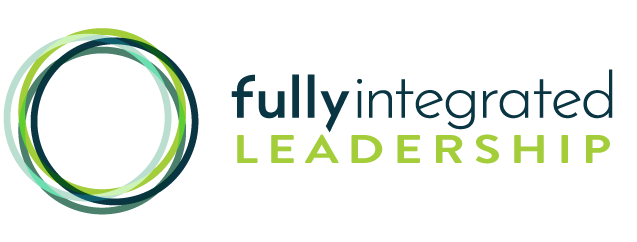Thought #1: It begins with fear…
Fear is one of the most basic human emotions. It is programmed into the nervous system and works like an instinct. From the time we are infants we are equipped with the survival instincts to respond with fear when we sense danger or feel unsafe. At a base level, fear is a mechanism for survival. The human brain has evolved to detect threat. The ones of us that can accurately detect threat can survive longer and therefore reproduce. For our ancestors, who were living in an environment where physical threats were plentiful, it made sense to have a bit of a “hair trigger” for fear instincts. But for us in the modern world, our fear instincts have become overplayed.
There are only two things we naturally fear when we are born. Take a moment to think about this and guess what the two fears are (hint: it’s not death and taxes!). The only two things we naturally fear are falling and loud noises. That’s it. All other fears are learned. Over time, psychologists show that we come to develop four fatal fears. Said another way, there are lots of different micro-fears that we are reacting to in life, but they can be broken down into four categories of fear:
The fear of being wrong
The fear of failure
The fear of experiencing emotional discomfort
The fear of rejection
Take a few minutes and consider each of these fears and ask yourself: Which of these fears is most prevalent for me in my life? Personally? Professionally? How does this fear drive my behavior? What do I do when confronted with a situation that brings up this fear (note, most of us respond to fear by fighting, fleeing, or freezing)? Where in my body do I experience this fear? Becoming aware of fear and how it drives behavior is step one in understanding our motivation.
Thought #2: What do I need?
Sitting right next to fear in the motivation department is needs. Abraham Maslow spent much of his career studying how needs drive behavior. His now famous Hierarchy of Needs has been taught and studied, making him one of the most influential psychological thinkers ever. Maslow identified two categories of needs: deficiency needs and growth needs. Let’s explore:
Deficiency Needs arise due to deprivation. We did not get something in our early life and we are now working hard to fill that void in our adult life. The longer we go without fulfilling those needs, the stronger the urge becomes to fill it. At the base of all human needs is physiological, the need for food, clothing, and shelter. The second need is the need for safety, a basic desire for control and order in our lives. This includes financial security, health and wellness, and accident prevention. The third basic need is the need for strong social connections, including love, acceptance, and belonging. The final basic need is the need for esteem, or the celebration of achievements which comes in the form of appreciation and respect.
As you watch your behavior, especially the behaviors you are not particularly proud of, ask yourself: Which of the above needs am I trying to fulfill when I take that action? Perhaps you worry a lot about money and take actions that come from a scarcity mindset. What was your earliest experiences with money? Perhaps you struggle to create lasting relationships with people…what were your early experiences with being in a loving family or feeling a sense of belonging to a community? Or perhaps you desperately seek affirmation by working overtime, prioritizing accomplishment over everything else…how much affirmation did you receive from authority figures for your accomplishments in early life?
The point is that our “negative” behaviors are often driven by a need to fulfill some void, and the same is true of other people (so be compassionate when someone is displaying frustrating behavior!). I encourage you to deeply explore these deficiency needs in your life and to look at how they manifest in unproductive behaviors.
Growth Needs are the second category of needs that Maslow identified. These needs arise due to a desire to grow as a person. I often times say deficiency needs lead to reactive tendencies while growth needs lead to creative tendencies. There are multiple growth needs, but three in particular I’d like to highlight today:
The need for exploration: we are learners by nature, but some among us are addicted to learning. When facing novel or uncertain situations, we bring a mindset of curiosity and look for possibilities in every interaction. We do not avoid problems, but also do not myopically focus on problems…we solve the ones that are impeding us from moving towards what we want in life.
The need for love: this is different from the basic need of belonging mentioned above. The growth need for love is one where we want to fully give and receive love, living as loving beings. It is not giving love so we can receive love; instead, it is an energy where we live from a place of compassionate, loving kindness for all living beings (yes, even for our “enemies”).
The need for purpose: for all of human history we have been asking the question why are we here? People who are fulfilling their growth needs constantly ask themselves this question and deeply explore what comes up for them personally. I’m not talking here about having a mission or purpose statement per se; what I am referring to is a deep intuition that drives our actions on a moment-to-moment basis. It is our “north star” that keeps us moving forward in life, serving something greater than ourselves.
I encourage you to deeply explore both the deficiency needs and the growth needs in your life. This will help you to understand why you do what you do…the good and the bad.
Thought #3: Values
Values are criteria for action. They are the principles we live by and become filters that we see the world through. Many people I work with as a coach intuit their values but they have not sat down and specifically identified and explore them. They therefore do not know whether they are living a “values-aligned” life. Many adopt the collective values of their family, community, or organization and live as if those are their own personal values. In the United States, and in the western world in general, the values of money and prestige seem to dominate, leading people to take actions that are unhealthy and not always best for the collective.
I encourage you to take the time to identify your personal values and to explore how aligned your life is with those values. To get started, I suggest you take the free personal values assessment at https://www.valuescentre.com/
Enjoy this deep exploration into motivation and remember, the Consciousness Revolution is about becoming more aware, individually and collectively. It starts with you. Do the work…and enjoy the hell out of the ride!

